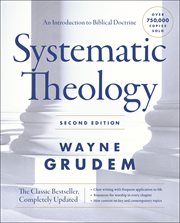Review by Booklist Review
Religion has been among the strongest forces shaping human existence, whether encouraging followers to acts of charity and generosity, or acts of hostility and violence against nonbelievers. Accordingly, religions include within their teachings a rich tradition of self-examination that allows followers to cast a critical eye on the ways faith can be used as a weapon or a balm. Religious scholar and rabbi Mikva explores these intellectual traditions in Judaism, Christianity, and Islam, from scriptural foundations to thinkers of the present day. She examines uses of scripture, concepts of election or chosenness, and the frameworks around punishment and reward in each of the Abrahamic faith traditions, always emphasizing the vibrancy and diversity of thought as opposed to the presence of a single, consistent teaching. The presence of multiple readings is among the great strengths of any religion, Mikva argues, and scripture gives religious adherents the tools to question, reexamine, and refine their faith in a perpetual quest for righteous action. A generous and thought-provoking book about the power and uses of religious faith.
From Booklist, Copyright (c) American Library Association. Used with permission.
Review by Publisher's Weekly Review
Rabbi Mikva (Midrash VaYosha), professor at Chicago Theological Seminary, argues in this excellent analysis that, though "all religious ideas are dangerous," those same ideas can provoke acts of compassion, generosity, and justice. The difference between antagonism and compassion, Mikva suggests, depends on how ideas are interpreted and applied in the context of everyday life. To make her case, Mikva reveals how Jewish, Christian, and Islamic traditions have wrestled with concepts such as chosenness, election, reward, and punishment in ways both beneficial and brutal. For instance, each religion takes "the concept of reward and punishment" portrayed on "the divine plane" to create a "parallel system of human justice": Israel imitated their God with a system "punishing measure for measure"; Christianity "promises the kingdom of God to those who provide support for people in need, and age-long punishment to those who do not"; and the Koran "attaches eternal consequences to divine judgment." With a particular focus on the textual sources of each tradition--Torah, New Testament, and Qur'an--Mikva illustrates how religious ideas can be used to include or exclude, enslave or liberate, and inspire hate for the supposed religious "other." Unfortunately, Mikva's focus on Abrahamic religions leaves out insights from Hindu, Buddhist, and indigenous traditions. This cogent work provides a promising platform for interreligious engagement, particularly for interfaith academics. (Nov.)
(c) Copyright PWxyz, LLC. All rights reserved
Review by Library Journal Review
In exploring how all three monotheistic faiths affirm ideas that can be dangerous and frequently cause significant damage to societies at large, Mikva (Chicago Theological Seminary) argues that certain concepts found in Judaism, Christianity, and Islam can be used either for evil or for good. She specifically focuses on three dangerous religious ideas: ones associated with scripture, election, and justice. She examines how the religions have interpreted their scripture and traditions throughout history, and finds that all three of them often have multiple interpretations of this material, with some of them affirming more aggressive behavior, and others not. Mikva explores how scriptural texts came to be understood, and believes each religion contains resources to combat the negative interpretations, and an important part of this is developing ongoing critical self-assessment. The religions then, in similar ways, could address current social problems related to such areas as intolerance, inequity, injustice, and oppression. VERDICT Those interested in scriptural interpretation, monotheistic religions, and interfaith dialog will find this book to be highly informative, well-researched, and relevant to contemporary culture.--John Jaeger, Johnson Univ., Knoxville, TN
(c) Copyright Library Journals LLC, a wholly owned subsidiary of Media Source, Inc. No redistribution permitted.

